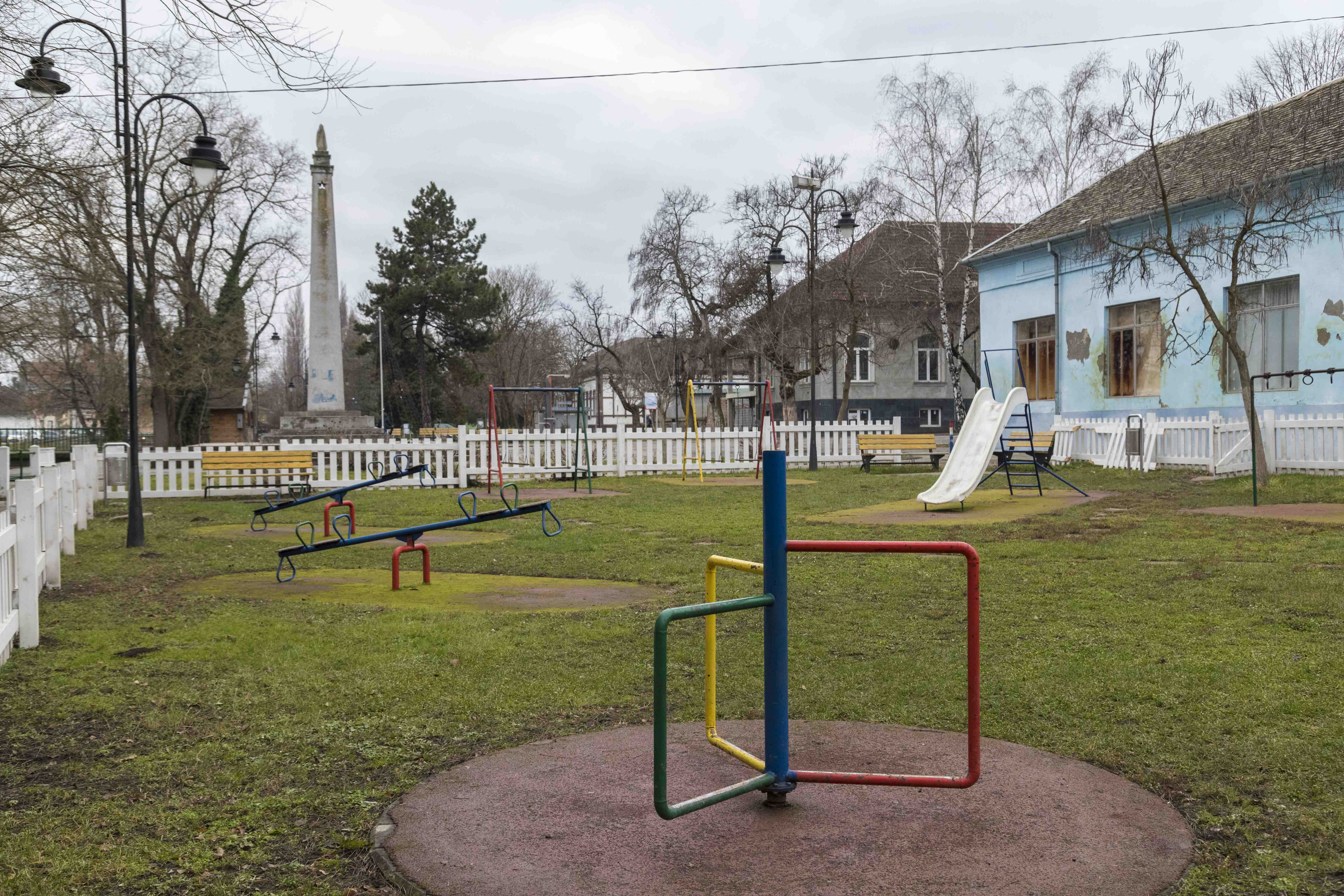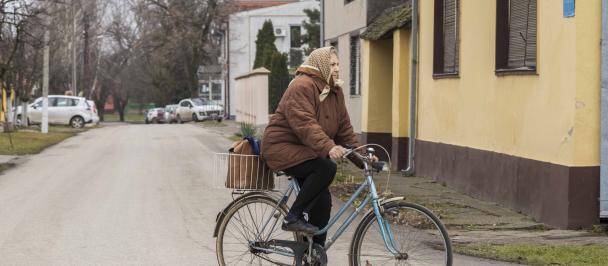Each year 51.000 people, most of them young, leave our country. We need systemic changes in the areas of education, employment and healthcare.
The children are fewer, the population is older, the number of those who leave the country keeps growing. Serbia is one of top ten countries around the globe whose population is declining at the record speed. The World Bank estimates that, if the current trends continue, by 2050 the population of Serbia will go down to 5.79 million. The causes of Serbian depopulation are rooted in different areas, such as labour market perspectives, family planning or education system. To come up with possible responses to these demographic challenges, the United Nations Development Program invited global experts from different areas to visit Serbia. Some of their solutions will be presented to the Government of Serbia, but one of their first conclusions highlights that we should not focus solely on the sheer number of people in the country, but on the potential that these people have.
Politika had the opportunity to talk to three experts who are all working in different areas: demography (Wolfgang Lutz), aging (Ruth Finklestein) and economy (Milica Uvalić). All three have stated that the burning issue is emigration, meaning that highly educated labour force is leaving Serbia. It is alarming that every year 51.000 people, most of them young, leave our country – a country that has been struggling for decades with negative population growth and poor economic parameters. The measures that could stop these trends, according to the experts we have interviewed, require systemic changes in the areas of education, employment, family policies, and healthcare.
IT IS IMPORTANT THAT THE EDUCATED PEOPLE STAY
Professor Wolfgang Lutz, a global expert on demography and Program Director of the International Institute for World Population and Applied System Analysis from Vienna, had the opportunity to work on analysing and assessing the demographic trends all around the world. He describes himself as someone who doesn’t fall for dramatic scenarios, neither those about a demographic explosion which is usually discussed in the context of certain parts of Asia and Africa, nor those about depopulation which are frequently elaborated when assessing the future of European countries.
He says that the educational structure of the population is an important parameter in demography, and from that perspective he sees reasons for optimism when it comes to the demographic future of the world. He believes that a better educated population will yield a better society. Talking to Politika, he says that people have very pessimistic attitude toward demographic trends, and they talk about depopulation, which is a pessimistic word.
“That’s an exaggeration, in the same way that in the 90’s everybody was talking about demographic explosion. There will be no demographic explosion and there will be no depopulation,” claims Professor Lutz.
However, he says a population decline has indeed happened, for two reasons: one is outer migration, the other is birth rate. The population growth in Serbia is not particularly lower than in other European countries, which means that the population growth here is not particularly low. It is similar to the one in Germany or Austria. According to Professor Lutz, this is not a problem if young people are better educated and become more productive.
“In Serbia, outer migration is a particularly big problem. Not because of the sheer number of people who leave, but because of the skills of those migrants, because the better educated and the more dynamic people are the ones leaving the country. This is the process that you must stop,” explains Wolfgang Lutz.
He adds that in the 1970’s many European countries started discussing the topic of how to increase their birth rate, with the states responding to this trend in different manners. According to Lutz, the measures of monetary support for every newborn child, which were recently introduced in our country, failed to give the expected results in the majority of countries where they were implemented.
“There was a short-term result, but in the long run, the desired goal was not achieved. For instance, Russia invested a lot of money in similar measures, the birth rate started growing, the total fertility rate (the number of live births per woman) reached almost 1.8, but now it dropped back to 1.4. Good practice examples are France or Scandinavian countries. For more than 100 years, France is implementing explicit pro-natalist policies and measures like free healthcare for children or tax exemptions for those who have three or four children,” says Lutz.
He offered his opinion about the trend of aging of population, stressing that it is very important to analyse the educational structure of this population because this is what primarily defines its characteristics.
YOUNG PEOPLE STRUGGLE TO FIND JOBS IN THEIR PROFESSION
Out of 100 new students who enrol in the higher education system each year, it is expected that only 13 will complete their studies and find a job corresponding to their qualifications. This data is from an in-depth study called “Higher Education and Labour Market in the Western Balkans” conducted for the European Commission four years ago, and since it was presented, little has changed in the part about Serbia. Around 200 employers and 1500 freshly graduated students had participated in this study.
The author of this survey that included our country, Milica Uvalić, Professor of Economics at the University of Perugia, says that the key problems remain the same. One is the manner of funding universities, according to which student fees are still one of the main sources of income, which is why the number of students who pay the fees is not governed by labour market needs, but by a faculty’s need for a certain level of income. The other is that the curricula do not sufficiently prepare the students for the jobs they are supposed to do when they graduate.
“We were surprised that more than 80% of companies that participated in the survey said that they had to additionally train their freshly graduated staff. At faculties, a large number of people did not acquire the skills and knowledge they needed for the labour market. Another problem is that there are too many people doing jobs for which they are overqualified. This shows that there is a great discrepancy between the higher education system and the labour market,” said Professor Uvalić.
One of the main reasons why young, highly educated people leave the country is the inability to find a job. Even though, at the national level, the unemployment rate in this population is lower than among the youth without faculty education, it is still three times higher than the EU average. This survey has offered possible solutions to this problem: better connection between the labour market and the higher education system; regular meetings between the representatives of universities and business to gain a clear insight into the employers’ needs; mandatory internship and trainings at all faculties… However, not much progress has been made in the implementation of these measures.
That said, the problem is not only in the higher education system, which educates a labour force that the labour market doesn’t need, without the appropriate sets of knowledge and skills.
“It’s the labour market itself that is in a very poor state, and it will remain so as long as there’s a lack of faster growth rate, expansion of the private sector and stronger support to small and medium enterprises. In fact, Serbia’s crucial problem is overly slow economic development. Some things are changing in an inexplicably slow manner, while others remain unchanged for too long without a good reason. For instance, the Labour Code has been changed so many times, and yet contributions paid by employers are still very high, which is why many companies are operating in the grey zone and avoiding paying taxes to the state,”, says Professor Uvalić.
She believes that our country still doesn’t quite welcome the idea of young experts returning from abroad. One of the reasons for this, she says, is the fear of competition: “If someone has a doctorate from Sorbonne, for example, and wants to return here, this person will often face closed doors at the university because their peers are not too thrilled to have them back. That is something that should certainly be changed,” says Professor Uvalić.
WE RETIRE TOO EARLY, WHILE WE CAN STILL WORK
Labour market and education should adapt to the fact that today we live much longer than 50 or 100 years ago.
Serbia is aging – these words convey the fear of depopulation, but also the concern that a higher percentage of inactive population will result in further worsening of the economic situation. Similar issues trouble the majority of European countries.
The system must be thoroughly changed, because in areas such as labour or education, it still hasn’t adapted to the fact that average life expectancy is much longer than 50 or 100 years ago. Only in the 20th century the life expectancy has been prolonged for 30 years, says Ruth Finkelstein, Executive Director of the Brookdale Centre for Healthy Aging and Longevity and Professor at the New York City University.
“We stop working too early. This isn’t a problem only in Serbia, but in many other countries as well, especially the developed ones. We end our career long before our health or capacities start declining, we retire at the same age as our parents, and this is what our employers expect us to do, even though our average life expectancy is much longer,” says Professor Finkelstein.
The labour market must adapt to this fact, which is similar in Serbia and in other European countries. The elderly should be provided with different opportunities to stay active and keep working – if they want to and if they can.
“Some of them would perhaps be happy to work part time, others would prefer to work from home, and there are also those who would like to mentor younger co-workers… The elderly can and should be active members of the society in many ways. You obviously need strategies to keep young people in the country, but I find it interesting that no strategy deals with how to preserve the brains you already have, the experts who have been working in the system for a very long time,” says Professor Finkelstein.
She underlines that we should differentiate between meeting conditions for retirement and raising the retirement age.
“Enabling people to work longer and requiring people to work longer are two different things. The retirement age doesn’t have to be changed, but the age limit for mandatory retirement should be raised. Therefore, you can retire at the age of 65 if you want to, if you have met the conditions to do it, but if you don’t want to, you should have the option to keep working,” says Professor Finkelstein.
Unsurprisingly, she advocates for the idea that universities should be open for elderly students (her university offers free courses for people over 65), underlining that it doesn’t make sense that we graduate at the age of 25, for example, and spend the next 50 years without going back to professional development and further education. She also offered her opinion about the current position of the elderly in Serbia.
“The social welfare for the elderly must be strengthened, but the local communities must be empowered as well. Local self-governments should encourage people to get together to discuss their needs, to look for solutions. This does not mean transferring responsibilities from the state to individuals. No, this means creating the opportunity for the elderly to become active participants in conversation, and not just mere receivers of care. Also, in this way, other community members can give their contribution and feel useful. Furthermore, healthcare services should be available to a larger number of beneficiaries living in different parts of your country. I think that the problem is not the quality of healthcare services, but their distribution. The quality is excellent – if it weren’t so, you wouldn’t have become such a large exporter of doctors and nurses,” says Professor Ruth Finkelstein.
The article was published in Politika magazin on 02.02.2020, journalist: Jelena Čalija.

 Locations
Locations






